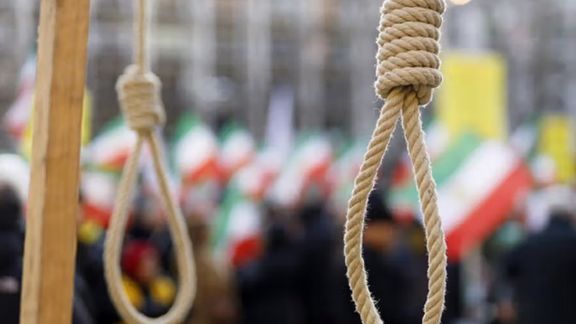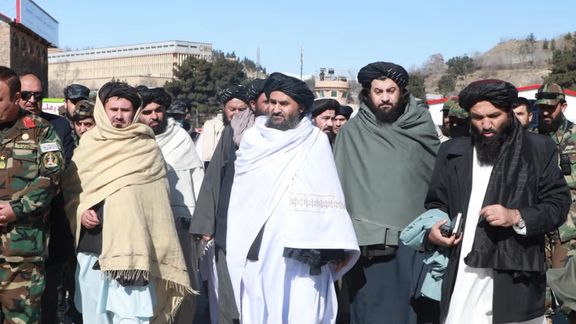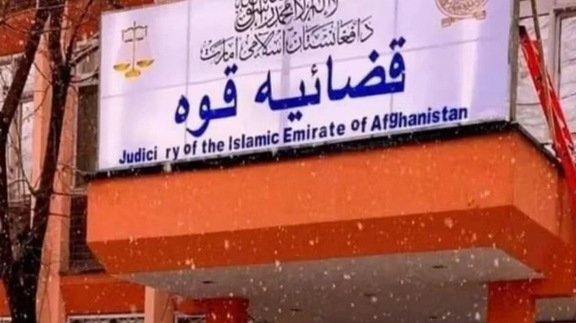Fasihuddin Fitrat, the Taliban army chief, denied any divisions among the group’s leadership, while Mullah Abdul Ghani Baradar, the Taliban’s deputy prime minister, urged the public to disregard media reports about internal discord. The high-profile attendance at the event appeared to be a serious effort to project unity and downplay growing concerns over internal rifts.
Following Mullah Baradar’s trip to Doha, the United Nations Security Council confirmed that he had travelled to Qatar for a one-month medical treatment, with a temporary travel exemption granted from 9 February to 3 March 2025.
Although the Taliban has not disclosed details about his illness or treatment, Baradar attended Thursday’s healthcare centre inauguration at Daoud Khan Hospital in Kabul. His presence suggests he may have cut short his medical trip to Doha and returned to Afghanistan.
Without directly addressing reports of internal disputes, Baradar stated: “Obedience and respect are fundamental principles in the Islamic Emirate and will continue under any circumstances. The Emirate remains focused on implementing Sharia, rebuilding the country, and ensuring the nation’s well-being.”
He also urged the international community to engage with the Taliban, arguing that political and economic pressure would benefit no one.
Mullah Yaqub, the Taliban’s defence minister, had not been seen in public since 25 January, when he met with Iran’s foreign minister in Kabul. Nearly a month later, he reappeared at the healthcare centre inauguration, where he reiterated the Taliban’s commitment to engaging with the international community while adhering to Islamic values.
“We do not want Afghans to be forced into migration again; we must stand against these challenges,” he said, adding that the country’s problems should be resolved “without making things worse.”
Fasihuddin Fitrat, the Taliban army chief, who had reportedly avoided his office in recent weeks due to security threats, also attended the event. He dismissed reports of internal rifts, saying, “There are no divisions among the Islamic Emirate’s leadership. These are merely rumours spread by our opponents.”
He further rejected claims of ethnic bias within the Taliban, asserting that positions are assigned based on merit.
Referring to the recent opposition gathering in Vienna, Fitrat declared: “There is no Afghanistan after the Taliban,” and insisted that any notion of a post-Taliban Afghanistan was a “delusion.” He accused opposition figures at the Vienna meeting of lacking genuine public support and urged Taliban critics to return to Afghanistan, claiming that the group had established security and eliminated discrimination.
Analysts believe the public appearance of key Taliban figures at the healthcare centre was a calculated move to counter growing reports of internal discord and defection within the group.
Reports of deepening divisions within the Taliban leadership have intensified, particularly following the escape of Abbas Stanekzai, the deputy foreign minister, who had openly criticised Taliban leader Hibatullah Akhundzada over policies oppressing Afghan women.
Sources indicate that the Taliban leader initially barred Stanekzai from leaving the country and issued an arrest warrant, but with the help of senior Taliban figures, he managed to flee Kabul.
Meanwhile, Sirajuddin Haqqani, the Taliban’s interior minister, was last seen 37 days ago during a meeting with Saudi Arabia’s ambassador in Kabul. On 21 January, the Taliban announced that Haqqani, along with Abdul Haq Wasiq, the group’s intelligence chief, had travelled to the UAE. The UN Security Council later confirmed that he had received permission to perform Hajj. Unverified reports suggest that Haqqani has since returned to Khost on a private flight from the UAE.
Afghanistan International recently obtained an audio recording of Abdul Hakim Sharei, the Taliban’s justice minister, in which he criticised widespread corruption within the group and claimed to have submitted his resignation, though it was not accepted.
Sources confirmed that Sharei has since travelled to Dubai. Following these reports, the Taliban’s justice ministry stated that he had left for medical treatment under orders from the group’s leader.
International media have widely reported that tensions within the Taliban are escalating due to Hibatullah Akhundzada’s hardline policies. The UK-based Telegraph recently reported that Akhundzada is at odds with key figures such as Sirajuddin Haqqani, Mullah Yaqub, and Abbas Stanekzai over the Taliban’s bans on women’s education and employment. The newspaper suggested that these disagreements could lead to further fractures within the group’s leadership.






